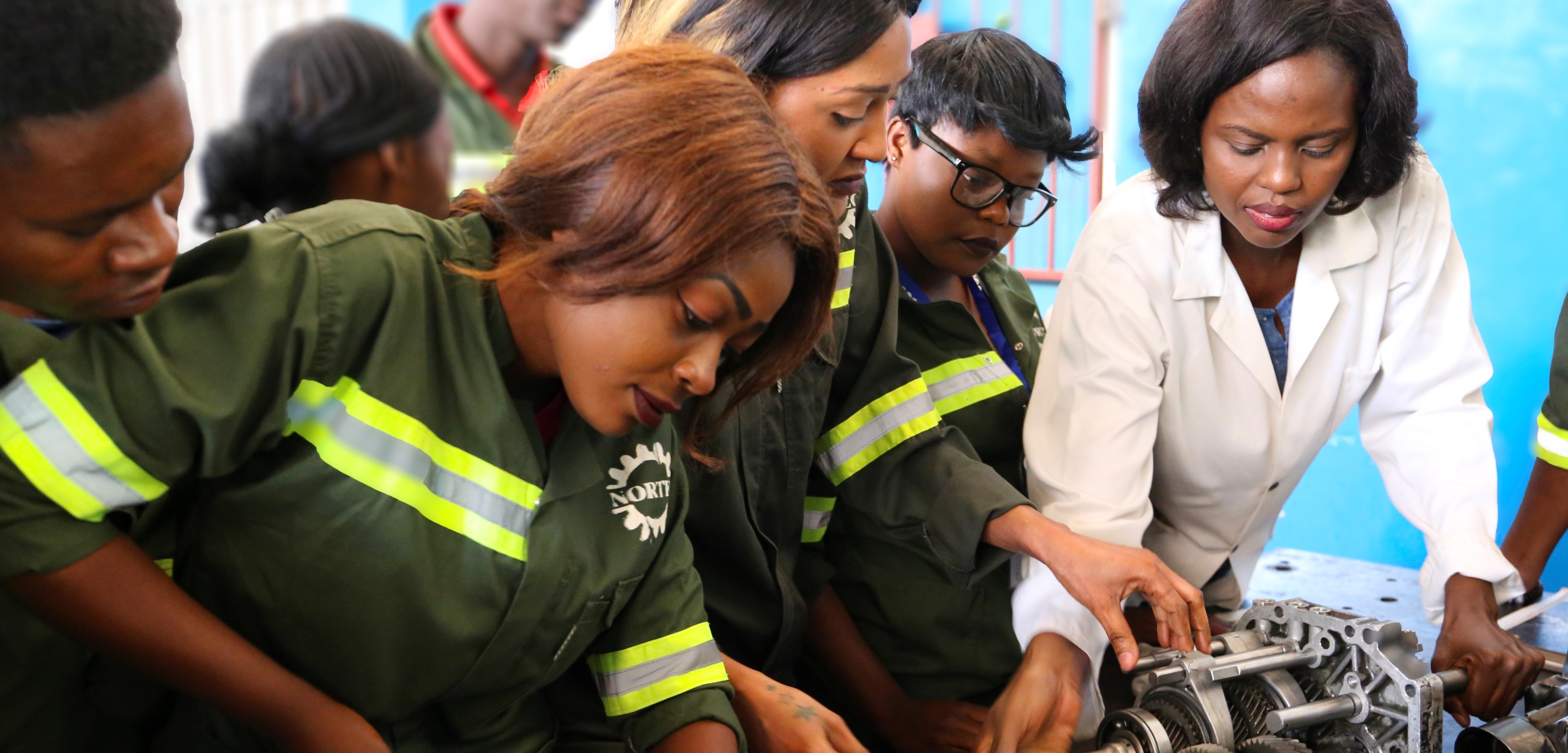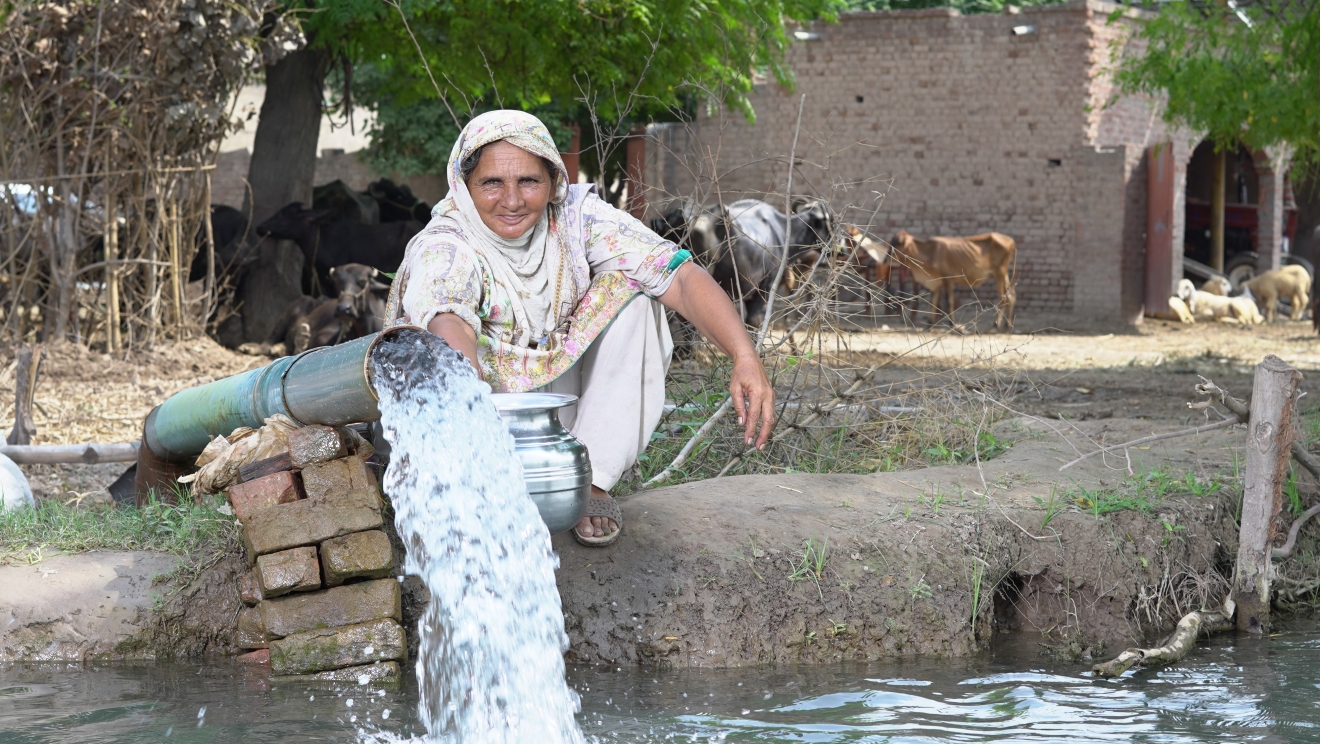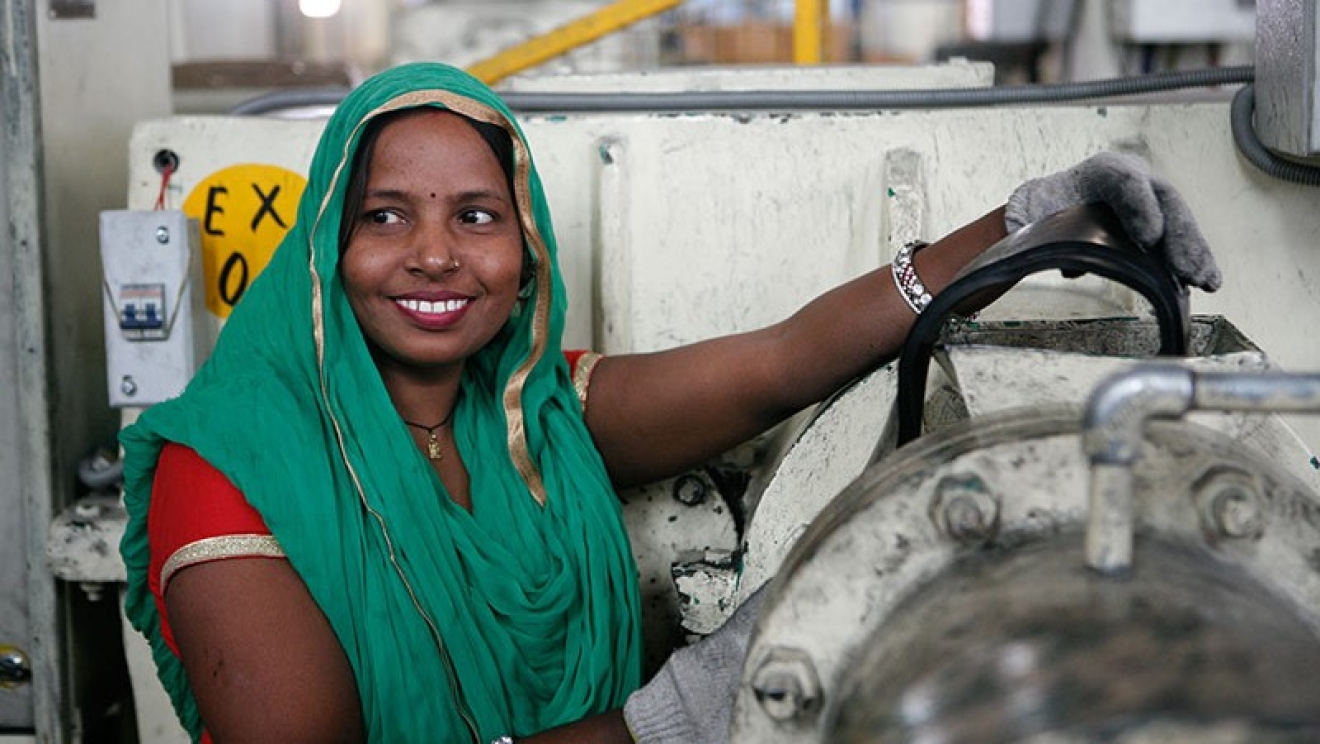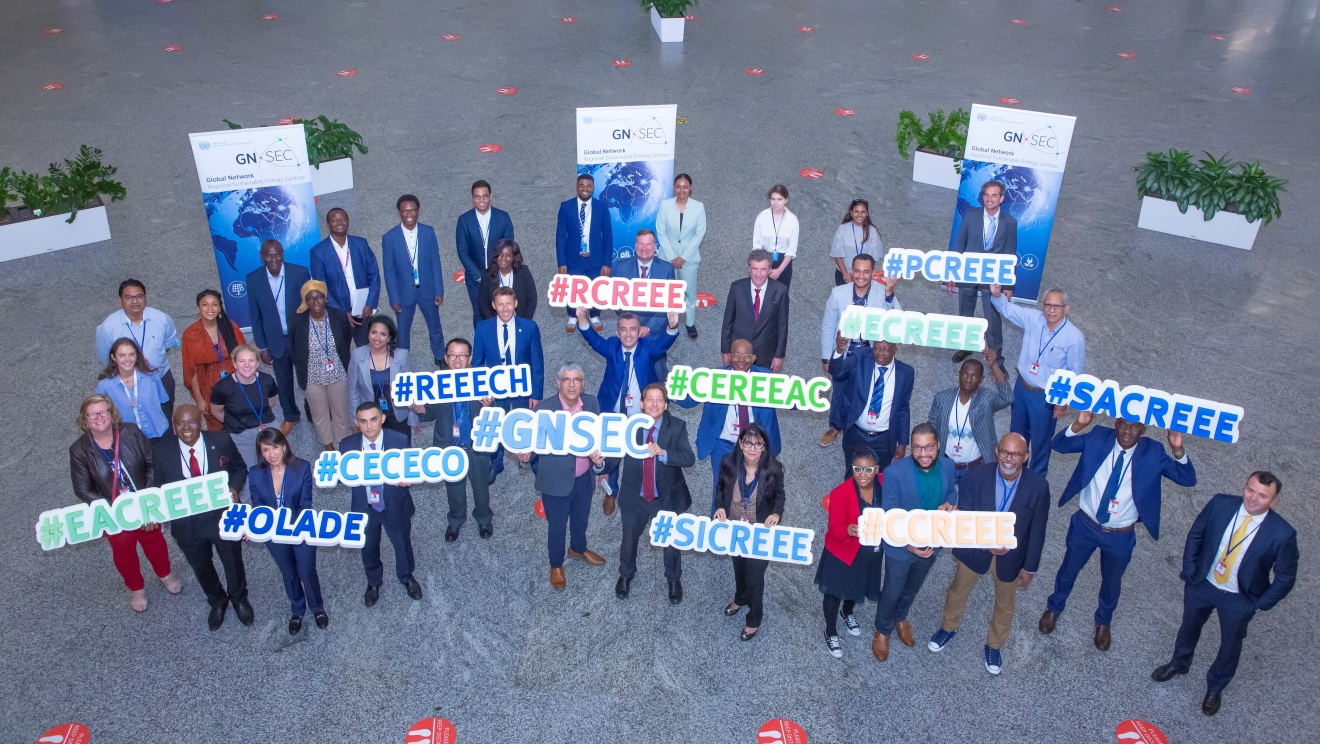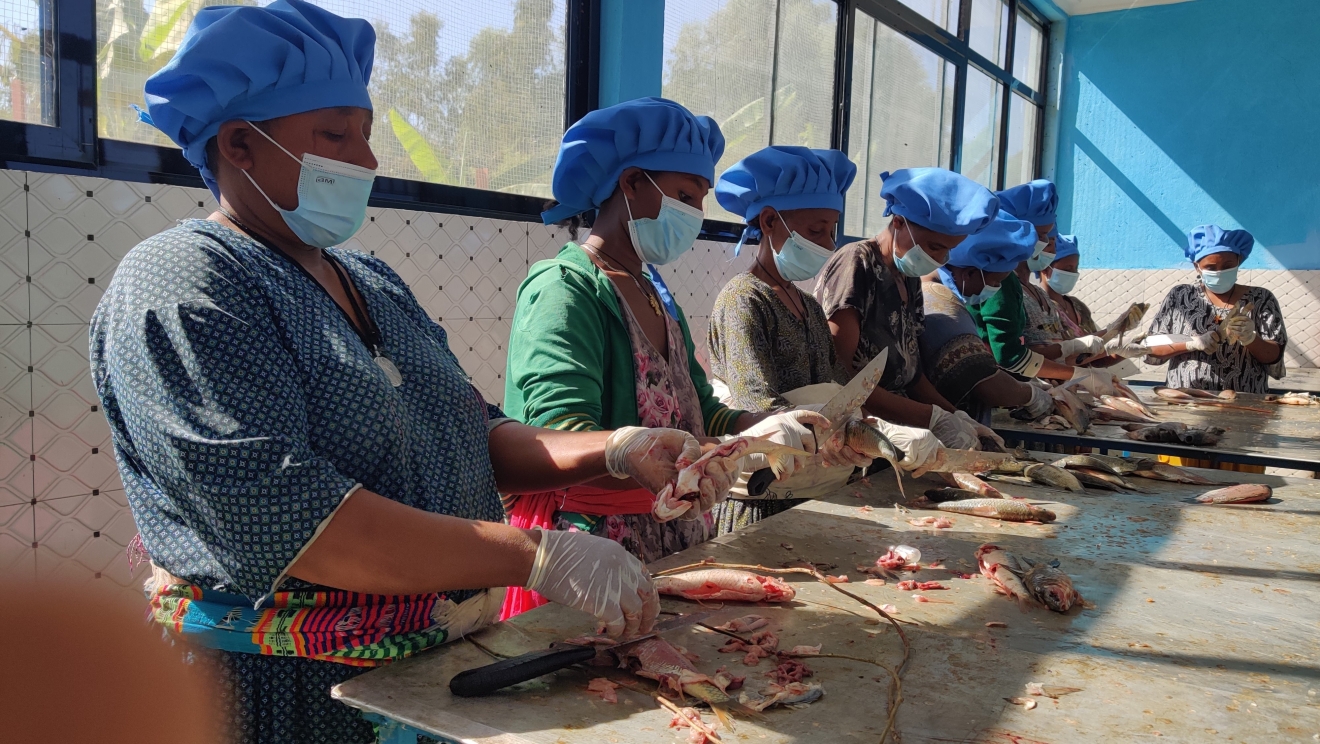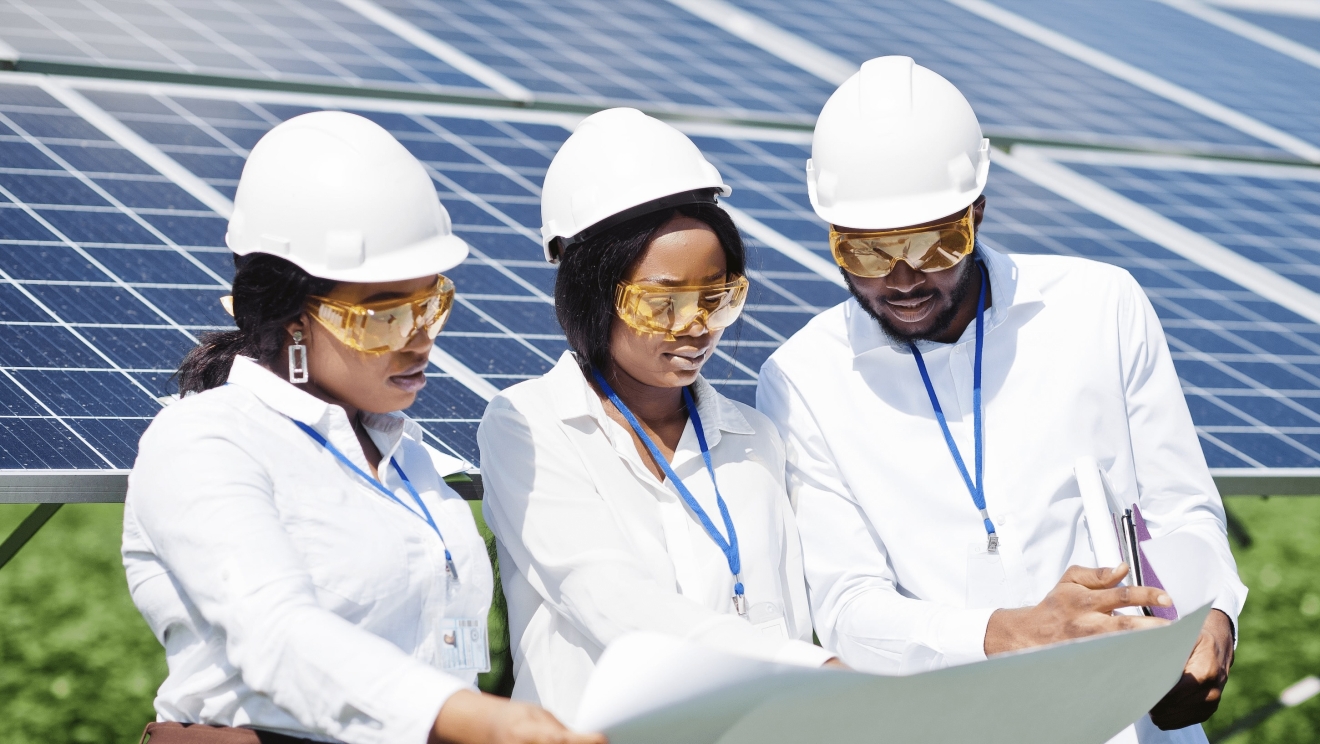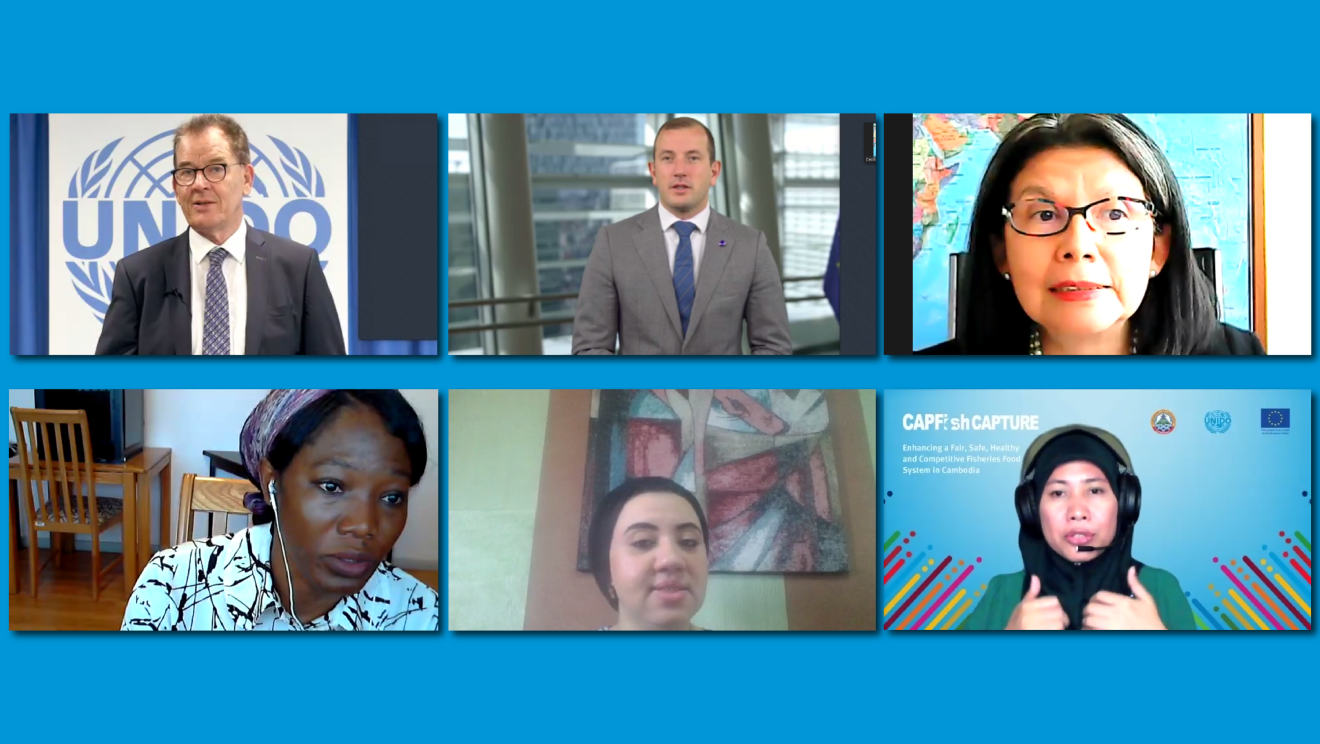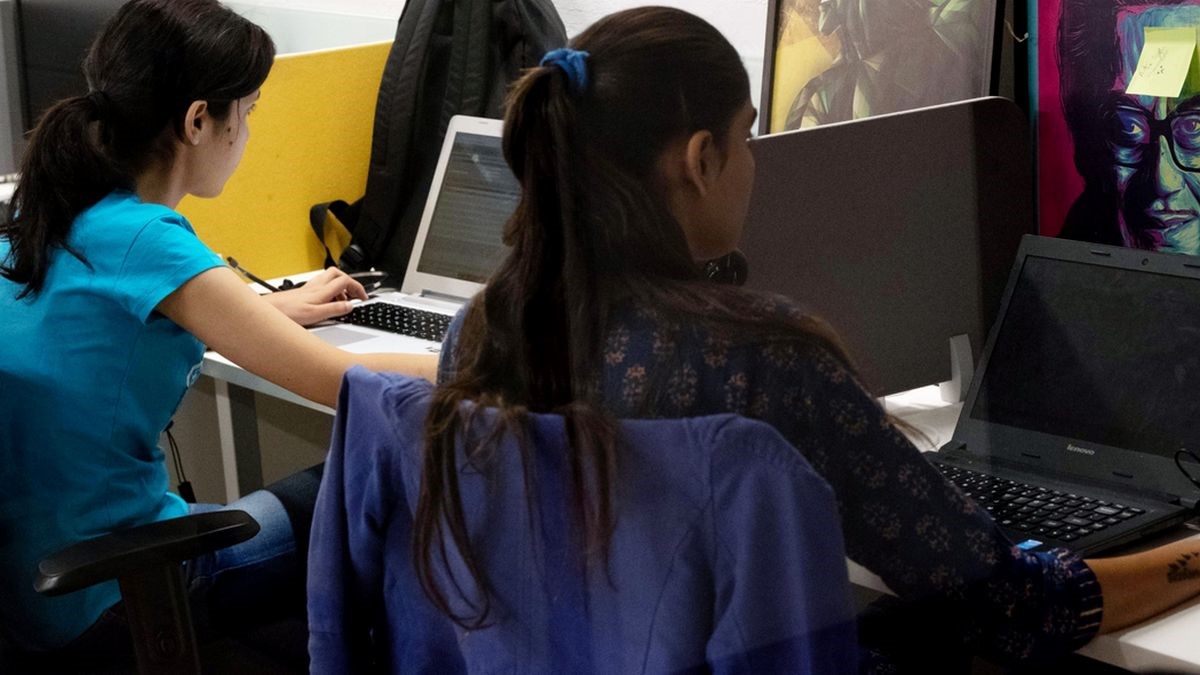
Gender equality and women's economic empowerment
It is UNIDO’s vision that women and men equally lead, participate in, and benefit from inclusive and sustainable industrial development. UNIDO fully recognizes that gender equality and the empowerment of women lie at the heart of its mandate. The Organization is committed to addressing gender inequalities in industry and to harnessing women’s full potential as leaders and economic agents of change, thereby transforming economies and generating inclusive growth.
Enhancing the role of women as drivers of poverty reduction, promoting female investors and entrepreneurs, and recognizing the link between gender equality and safeguarding the environment all promote inclusive and sustainable industrialization, and directly contribute to the 2030 Agenda for Sustainable Development and its Sustainable Development Goals.


Targeting gender equality and women’s economic empowerment is not only important from the perspective of realizing women’s rights but is also smart economics. Economies grow faster when gender equality is advanced; less people remain in poverty, and overall well-being increases.
UNIDO is committed to implementing programmes that challenge the discrimination faced by women and girls, whatever their background and identity. Such programmes facilitate the transformation of social norms and power relations, prioritizing increased women’s participation and leadership in formal economic sectors and in environmental conservation and climate action.
UNIDO collaborates with partners across the UN system, the private sector and at the country level to engage men, as well as women, at all levels to help shift the power relations, social norms and gender stereotypes that limit both women and men’s prosperity and economic contributions.
By increasing women's access to productive resources, creating enabling conditions for women’s entrepreneurship and job creation, providing vocational training, promoting women’s agency in climate change adaptation and mitigation, and building the knowledge and capacity for gender-responsive industrial development, UNIDO is helping to create a world where both men and women can thrive.
Sustainable supply chains
Approximately 190 million women work in global supply chains – in the factories, farms and packing houses that supply the world’s clothing, goods and food. These jobs offer a promise of economic independence but the reality for millions of women workers is excessive hours, often in difficult and unsafe working conditions, and wages that are not enough to make ends meet.
Stopping climate change
Climate change disproportionately affects women, and as an extension, women-run businesses. But women are powerful agents of change who can accelerate and scale up climate action. Furthermore, innovation is key to mitigating and adapting to climate change: data shows that diverse teams are more innovative and perform better than homogenous groups.
Reducing hunger
Women are crucial stakeholders in agribusiness value chains around the world. Comprising as much as 50% of the agricultural workforce in many regions, women are essential to planting and harvesting, as well as processing, logistics and sales. Despite their contributions, women face unique challenges that hamper their productivity, in turn weakening rural economies, the businesses that depend on them, and the global food chain.
